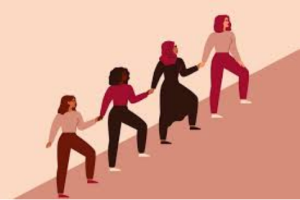
Although Ethiopia is signatory to the convention on human rights since its inception, the country has not been able to stop violation of human rights. In fact, until recent times, violations had been committed by the government itself. That was actually due to politicization of human rights issue, lack of independent civic society, lack of free press and other factors.
Daniel Bekele (PhD), Commissioner of Ethiopian Human Rights Commission, recently told media that since the coming of the political reform in the country, the government has taken various measures to create an enabling condition to prevent human rights violation. Those measures include improving press freedom, expanding the democratic landscape, restructuring the National Electoral Board, releasing dozens of political prisoners, and improving civil society law.
He said that the reform was born out of the people’s struggle to stop to the rampant violation of human rights in the past.
“Even currently, we can’t say there is no violation of human rights in the country, but rather, under the new reform, a lot of opportunities have been created to ban the violation,” he said.
There is a great commitment on the part of the government to respect human rights in the country, although it is undeniable that there are still some violations of human rights in different circumstances, especially in relation to people’s displacement.
As government lifted the embargo that was applied on civic societies for long before the emergence of the reformist government, the Commission has been able to work with them in close collaboration and without imposing any influence. Taking the reform as a good opportunity the Commission has also been bringing them together so as to strengthen their capacity, it says.
“In general, we have been reforming and restructuring the Commission in order to enhance its capacity and increase the participation of civic societies.”
As to Amaha Mekonnen, Chief of Ethiopian Human Rights Board, the national reform has brought positive changes when it comes to respecting human rights. Because, he said that civil societies that used to function before the reform were either undisciplined or under government influence.
With the prevalence of enabling conditions created by the government, he said, the Board has been working in collaboration with different international human rights organizations, and it has been getting international recognitions.
Amaha underscored how it was difficult to advocate for human rights before the reform for the government had been considering human right activists as its enemies and enemies of the country.
Mesud Gebeyehu, CEO of Consortium of Ethiopian Human Rights Organizations (CEHRO), for his part said that current human rights violation is perpetrated not by the government, but by non-state actors during ethnic-based conflicts and unrests.
As protecting the rights of citizens from any harmful practice is the duty of the government, Mesud says, his Organization calls on the government to ensure the security of the country’s citizens by ensuring rule of law.
According to him, activists should be responsible on what they write and say on social media, as the violations have been created from their communications and activities, whilst the youth in general should go through the legal ways to raise their demands instead of using methods that leads to anarchy.
As part of intensifying protection of human rights, Mesud disclosed his Organization’s plans to reward individuals who contributed for the protection of human rights in the country.
The Ethiopian Herald December18, 2019
BY TAMERU REGASA




